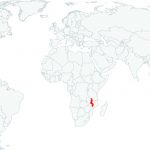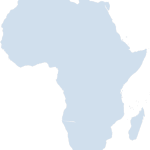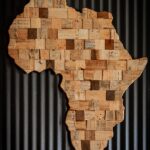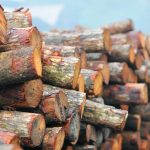
Located in Malawi’s southern region, near the Mozambique border, Mulanje is the country’s highest mountain and the source of several rivers that support hydroelectric power generation and agriculture. Bananas, pineapples, cassava, and sweet potatoes, along with cross-border trade with Mozambique, sustain the livelihoods of nearly 700,000 people in surrounding communities.
But it was always the cedar tree that symbolised the real wealth of this area. Besides providing shade for the crops, it also served as a tourist attraction, generating income. Locals used it to make furniture. Yet, as community elders attest, it has been and continues to be destroyed by illegal loggers in collusion with government officials.
A ZAM transnational investigation conducted across six African countries has revealed the complicity of governing political elites in rapid deforestation. At the same time, many of these elites are receiving billions of dollars and euros in ‘green’ funds from international partners, including the UN, the EU, and the World Bank. Previous instalments of this investigation, already published by ZAM, have highlighted this pattern in Uganda, Nigeria, and Mozambique. The latest findings from Cameroon, Ghana, and Malawi are in line with the earlier results.
The first high-resolution (5 m) and continental-scale
mapping of land use following deforestation in Africa, including humid and dry forests.
Results show, not surprisingly, that the causes of forest loss vary by region. In general, small-scale cropland is the
dominant driver of forest loss in Africa, with hotspots in Madagascar and DRC. In addition, commodity
crops such as cacao, oil palm, and rubber are the dominant drivers of forest loss in the humid forests of
western and central Africa, forming an “arc of commodity crops” in that region. At the same time, the
hotspots for cashew are found to increasingly dominate in the dry forests of both western and southeastern Africa, while larger hotspots for large-scale croplands were found in Nigeria and Zambia.
For the past 11 years, Global Witness has documented and denounced waves of threats, violence and killings of land and environmental defenders across the world, and 2022 marks the beginning of our second decade documenting lethal attacks. The world has changed dramatically since we started documenting these in 2012. But one thing that has not changed is the relentlessness of the killings.
Last year, at least 177 defenders lost their lives for protecting our planet, bringing the total number of killings to 1,910 since 2012. At least 1,390 of these killings took place between the adoption of the Paris Agreement on 12 December 2015 and 31 December 2022.
New forestry laws and improved capacity in Malawi’s courts have improved law enforcement’s ability to fight forestry-related crimes, like illegal charcoal production.
Under a new amendment to the country’s Forestry Act, which treats charcoal as a forest product, the government now has the authority to issue stronger penalties, fines and jail sentences.
The USAID and UKAID-funded Modern Cooking for Healthy Forests (MCHF) program supports the government in improving its capacity to investigate and prosecute these activities.
This post is an analysis of the situation by a MCHF contractor. The views expressed are those of the author, not necessarily Mongabay.
Click here to access the Global Illegal Logging and Associated Trade (ILAT) Risk assessment tool and to download the Forest Trends User Guide describing the functionality of the ILAT Risk Data Tool.
Click here to access the Cattle Data Tool.





